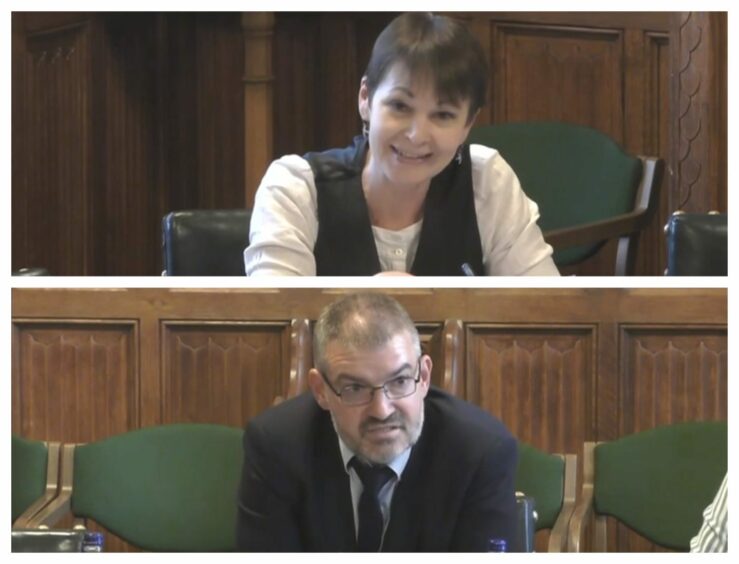
A senior North Sea figure crossed swords with the UK’s only Green Party MP during a heated discussion about the future of the energy industry.
Will Webster, energy policy manager at trade body Offshore Energies UK (OEUK), gave evidence to Westminster’s Environmental Audit Committee as part of its inquiry into accelerating the transition from fossil fuels and securing energy supplies.
He was joined by representatives from major energy suppliers E. ON and EDF, as well as academia and think tanks.
They were quizzed by MPs on whether the rising cost-of-living could lock-in fossil fuels or spur low carbon electricity generation and energy efficiency.
During the session Caroline Lucas, Green Party MP for Brighton Pavilion, questioned Mr Webster about the development of the North Sea Transition Deal (NSTD).
A pact struck between government and industry last year, the £16 billion NSTD is designed to support the UK’s oil and gas industry as it works to lower its carbon emissions.
Asked by Ms Lucas about who produced the first draft of the document, Mr Webster said: “We did that in cooperation with our members. What we tried to do is acknowledge that we’re oil and gas companies, and there’s no escape from that. Now we want to support the transition to net zero, so what can we offer as a sector.”
In response, Ms Lucas said: “As I understand, a freedom of information request has revealed that in fact this NSTD, which one might have thought would have been something that the government owned and signed off ,was fundamentally written by the industry. That rings some alarm bells.”
She also described the document submitted by industry and the one published by government as “pretty much identical” in many areas.
“I wouldn’t say that,” replied Mr Webster, adding “there was quite a long period of discussion and negotiation around what was committed to as part of that.
“A lot of this was done in public, so we adopted the emission targets quite a long while before that, and we did that before there was even any discussion about the NSTD.
“Other things that are in there, relating to carbon capture and storage, and hydrogen etc. That was a discussion that was already going on in government circles.
“We wrote the NSTD in response to what we’d already said independently and the policy development that was going on at the time, so I wouldn’t read anything too much into that.”
Ms Lucas also raised doubt about whether green energy companies are given fair representation by OEUK, which rebranded from Oil and Gas UK earlier this year.
She claimed that renewables firms “don’t have the same powers within the decision making body of the industry” as their oil and gas counterparts.
Mr Webster said that “increasingly their won’t be that distinction” between the two, and that most of OEUK’s board members are “involved somehow or other” in offshore renewables.
Pressed on whether renewables companies get a vote, he added: “Renewable companies that are not associate members would have a vote. If they want to join as a full member, they can have a vote.”
Ms Lucas said: “Can we sort of cut through the crap here. If the company is not doing oil and gas and is purely renewables, can they vote?”
“Yes, if they join as a full member and get accepted onto the board. We changed our articles of association recently,” replied Mr Webster.

 © Bloomberg
© Bloomberg © Supplied by OGUK
© Supplied by OGUK